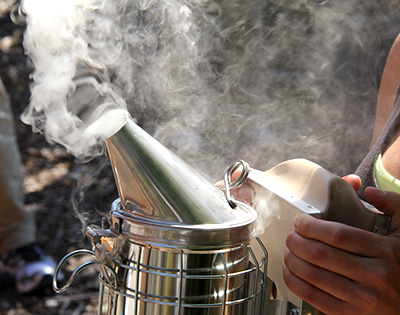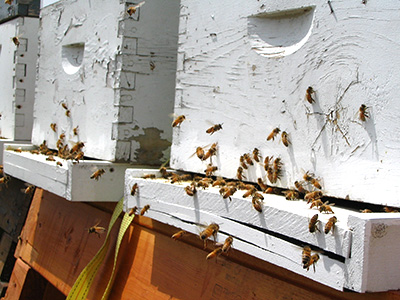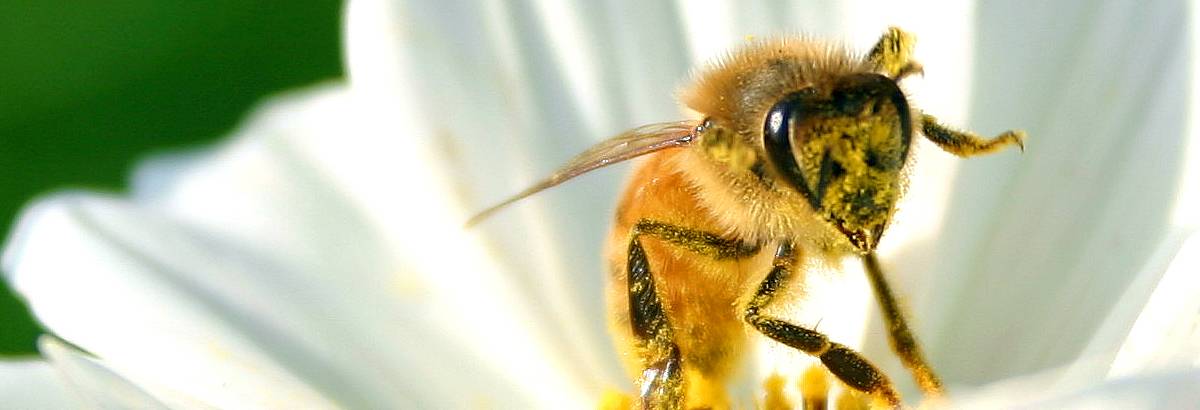About the Program
Honey bees are faced with more diseases, more pests, more challenges of all sorts than ever before. Traditional beekeeping practices are no longer sufficient to keep bees alive, much less producing at full capacity.
Earning this certificate will distinguish you as a beekeeper grounded in science and versed in the latest discoveries in honey bee health.
Although each of the courses is only a few weeks in length, the full program takes three years to complete. It is structured to give participants a full year of experience between courses.
The program begins with the basics of handling honey bees, takes students through diagnosing pests and diseases, managing hives for optimal honey bee health, as well as honey production and marketing, and concludes with the business of beekeeping.
The courses meet online with instructors guiding the lessons, participating in discussions, and being available to answer questions.
The courses have traditionally been noncredit with a certificate of completion, but students have the option of taking the courses for academic credit through the University of Montana. In either option, students must be aware these are rigorous courses that require participation in discussion forums and completion of assignments and quizzes.


Video
Is this program for me?
Both hobbyist and commercial beekeepers have taken our courses. To gain the most benefit from the program, students should have entry-level experience with handling bees, an appreciation of the contribution bees provide to our food crops, an awareness of current honey bee health issues that impact bee populations, and be committed to honey bee vitality.
- Students should be able to read, study and write at the college level.
- Students should have an interest in the science of beekeeping.
- Students must be a minimum of age 16.
- Students should be able to allocate enough time for the coursework: at least three hours per week in addition to every hour of class time.
- Students should have or be willing to acquire textbooks, basic beekeeping clothing and equipment. A microscope is required for the Journeyman and Master Level courses.
- Students should have an open mind and be interested in joining a community of informed beekeepers - a network that will serve as a resource for years to come.
- Instruction focuses only on the Langstroth hive. Top-bar and alternative hive designs are not used in this program.
Our Apprentice course is the foundation for all other courses. Experienced beekeepers may begin at a higher level (Journeyman Level or Natural Beekeeping) if they pass UM's Apprentice Level course final exams. To test out of the Apprentice course, participants must achieve an average score of 80% or higher across both online exams, which have been designed to determine Apprentice-Level proficiency.
We suggest reading the Apprentice Level book before attempting the exams:
Storey's Guide to Keeping Honey Bees, 2nd Edition: Honey Production, Pollination, Health
Malcom T. Sanford and Richard E. Bonney, Storey Publishing 2018
ISBN: 9781612129785 (Paperback)
Participants have only one attempt to pass the timed exams. Exams are graded within 10 business days, and participants will be notified of their final score by email. If you receive a passing score, you may register for the next available course (Journeyman Level or Natural Beekeeping) by visiting the program website. If a course is not currently available, you will be notified of future offerings via email.
